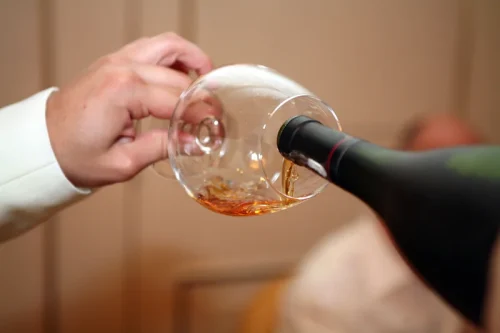
Sugar alcohols have a structure similar to that of sugars but also contain an alcohol molecule. This means they taste sweet but are not absorbed and metabolized in the same way as sugar. They’re found naturally in some fruits and vegetables, such as plums, strawberries, and avocado, and also made by processing regular sugars.

Mental health
- The terms ‘serve’ and ‘servings’ should appear nowhere on alcohol products as this may encourage consumption of alcoholic beverages,” it said.
- After you drink alcohol, your blood sugar levels can drop up to 24 hours later.
- Alcohol affects many parts of the body, including the liver, which works to maintain healthy blood sugar levels.
- Your healthcare provider will tell you how much alcohol is safe for you to drink.
They provide fewer calories per gram than regular sugar but still deliver a sweet taste. Sugar alcohols are low in calories and carbs, but, depending on the type, aren’t free of them. So, it’s still possible to gain weight when you’re eating foods that contain sugar alcohols, especially if you eat them in excess.

New alcohol labelling requirements for Australia and New Zealand move a step closer, industry generally supportive
People with diabetes need to pay particular attention to their alcohol consumption because of its effects on blood sugar levels. Some alcoholic drinks are worse than others when you have type 2 diabetes. Certain types of alcohol are especially high in carbs and sugar, even if you drink them straight. For example, studies have shown that for people who have type 2 diabetes, occasionally drinking alcohol may slightly reduce glucose levels. And those with diabetes need to bring down elevated glucose levels. It makes sense, then, that drinking could play a role in preventing and treating type 2 diabetes.
Plus, get a FREE copy of the Best Diets for Cognitive Fitness.
We talked with Bissell and physician-scientist Stanley Hazen, MD, PhD, to understand what sugar alcohols are and the potential risks that are coming to light. Below is the alcohol content in some common alcoholic drinks, according to the CDC. Previously, FSANZ had initiated an upgrade for voluntary alcoholic beverage labelling standards. Work was paused while FSANZ undertook preliminary work on energy labelling of alcoholic beverages. It recommenced in April 2022 and public consultations ended in 20 March 2023.
- Excessive sugar intake is linked to health conditions, such as obesity, heart disease, diabetes, and inflammatory diseases (2, 5).
- For the declaration of energy content information, the NZFGC and The George Institute do not support the use of ‘Nutrition Information’.
- Though they’re both manufactured, they differ in a couple of key ways.

Dr. Hazen and his team have conducted studies on the effects of both xylitol and erythritol. Your body cannot digest most of them, so they travel to the large intestine, where your gut bacteria break them down. Xylitol promotes dental health by reducing plaque formation, inhibiting tooth demineralization, and preventing the growth of harmful bacteria (16). Instead, most of it gets absorbed by your small intestine, then spread throughout the body before being excreted unchanged in your urine (11).
Novel sweeteners
But studies with blood, platelets and non-human models all point to erythritol and xylitol enhancing blood clotting risks (what happens in a heart attack or stroke). The concern is that eating foods with these sugar alcohols may put you at a higher risk for heart attack why do alcoholics crave sugar and stroke. People with blood sugar issues should avoid consuming mixed drinks and cocktails. These drinks are often full of sugar and empty calories and may increase blood sugar levels. For many people, the occasional glass of alcohol does not pose a problem.
- Many sugar alcohols can cause gas, bloating, and stomach aches, especially when eaten in large amounts, and some people may be more sensitive to this effect than others.
- While they all taste “sweet,” they don’t taste identical to sugar.
- Without treatment, it can lead to loss of consciousness and coma.
- Bacteria that live in the mouth do not feed on sugar alcohols, so they do not cause tooth decay like regular sugar.
- It can be difficult to determine if someone is experiencing hypoglycemia or is intoxicated because they share many of the same symptoms.
- Food companies often combine sugar alcohols with artificial sweeteners to make foods taste sweeter.

